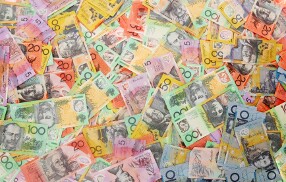The Australian dollar fell against the euro and erased its earlier gains versus the Japanese yen on concerns about economic slowdown in China. The currency gained versus the US dollar after Federal Reserve Chairman Ben Bernanke spoke, spurring speculations about quantitative easing from the Fed.
According to the government report, China’s Purchasing Managers’ Index fell from 50.1 in July to 49.2 in August, being even worse that the pessimistic forecast of 49.8. A value below 50.0 indicates decline. That is the first time this year the government data falls below the neutral 50.0 level. Non-government reports already have been below that level for some time.
China is the biggest trading partner of Australia. That means that economic slowdown in the Asian country does not bode well for the Australian assets, including the currency. The speech of Bernanke resulted in weakness of the US dollar against other most-traded currencies, allowing the Aussie to gain against the greenback.
AUD/USD rose from 1.2930 to 1.0324. AUD/JPY closed at 80.86, following the advance from 80.90 to 81.28. EUR/AUD went up from 1.2145 to 1.2176 and its daily high of 1.2270 was the highest since July 5.
If you have any questions, comments or opinions regarding the Australian Dollar,
feel free to post them using the commentary form below.
